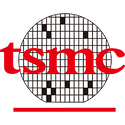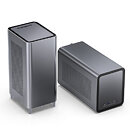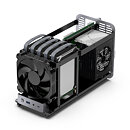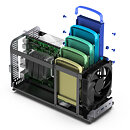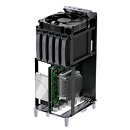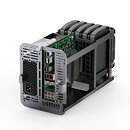CTL Announces the Chromebook NL73 Series
CTL, a global cloud-computing solution leader for education, announced today the introduction of the new CTL Chromebook NL73 Series. The new Chromebook, incorporating the Intel Processor N100 and Intel Processor N200, enables IT professionals to equip schools with the cloud-computing performance they need today and with the sustainability required for tomorrow.
"Since Chromebooks were widely deployed during the pandemic to remote students, new applications have come into use, requiring more processing power and cybersecurity measures than ever before," noted Erik Stromquist, CEO of CTL. "Chromebook users will need to level up their technology in 2024. Our new NL73 Series delivers not only the power to meet these new requirements but also CTL's flexible configuration options, purchase options, and whole lifecycle management services for the ultimate in sustainability."
"Since Chromebooks were widely deployed during the pandemic to remote students, new applications have come into use, requiring more processing power and cybersecurity measures than ever before," noted Erik Stromquist, CEO of CTL. "Chromebook users will need to level up their technology in 2024. Our new NL73 Series delivers not only the power to meet these new requirements but also CTL's flexible configuration options, purchase options, and whole lifecycle management services for the ultimate in sustainability."

